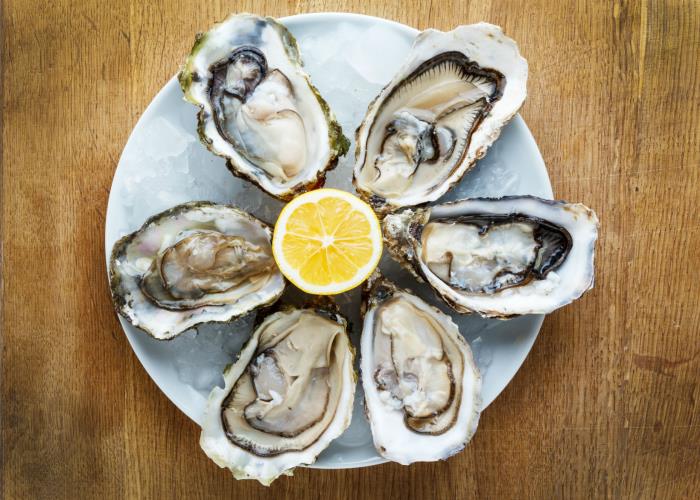Should we be gambling on oysters?

Killer bivalves or just another tabloid scare? Our man swallows his fears.
“75% of oysters contain traces of the norovirus vomiting bug!” cried the headline in the Daily Mail last week. In Wright Brothers Seafood Restaurant in London’s Soho, restaurant operations manager Jérémie Cometto-Lingenheim and I both laugh insouciantly and pluck more shiny oysters from our platter before joyfully tipping them down our throats.
They are delicious: plump, briny, redolent of the sea, they certainly don’t seem to be the death-bringers the popular press have been making them out to be.
It makes you sick
“Someone rang in to say they’d eaten oysters here three weeks ago,” says Jérémie as he loosens another oyster from its shell, “and having read that article they were now feeling a bit ill and was it our fault?” He shakes his head: “Three weeks ago!”
It hasn’t been good for business. On the day the offending article appeared Wright Brothers received a slew of dinner cancellations even though there was nothing in the article about the restaurant itself. Fulminating about it on Twitter, Jérémie vowed to eat five of his own oysters at 5pm every day for a week. I popped in to join him on his mission.
Russian Roulette?
It was hardly the scene from The Deerhunter, with each of us taking turns to point a possibly loaded oyster at our heads, but of course food poisoning is no laughing matter. Anyone who’s suffered can tell you that being unable to decide which end to point at the porcelain, only to discover the only effective answer is both, is no joke.
Most food poisoning comes about through sloppy kitchen practice: cross-contamination of raw and cooked meats, food not sufficiently heated through from chilled and staff not washing their hands.
The other sort, when the virus is already present in supplied food, is harder to avoid, as Heston Blumenthal’s Fat Duck restaurant found out this year. Oysters feed by filtering water. If that water is contaminated, so is the oyster.
Talking sewage about oysters
Jérémie believes incidences of infected oysters come from irresponsible sewage dumping out at sea, but the chances of falling ill are still statistically slight. The Food Standard Authority’s argument that three quarters of oysters are contaminated does not mean they all cause sickness, because no safe limit of the virus has yet been established.
And as Colin Pressdee, author of the London Oyster Guide, points out:
“The oysters tested were apparently unpurified ones and all UK oyster producers have to carry out purification by law.”
David Attwood, Aquaculture Director at Loch Fyne Oysters, agrees: “In the absence of any UK standards and methods, we carry out extensive testing for the presence of norovirus in our oysters to ensure that our raw oysters are safe to eat.”
As with many things, the pregnant, the very young and the elderly may wish to take care but the good news is that it means all the more for the rest of us.
Will you be passing up the chance to eat raw oysters through fear of throwing up? Or does the news not even touch your sides? Let us know in the Comments section below.
More slippery goodness
The Wright Brothers - oyster producers to the stars
Martin Berasategui's oysters
Comments
Be the first to comment
Do you want to comment on this article? You need to be signed in for this feature